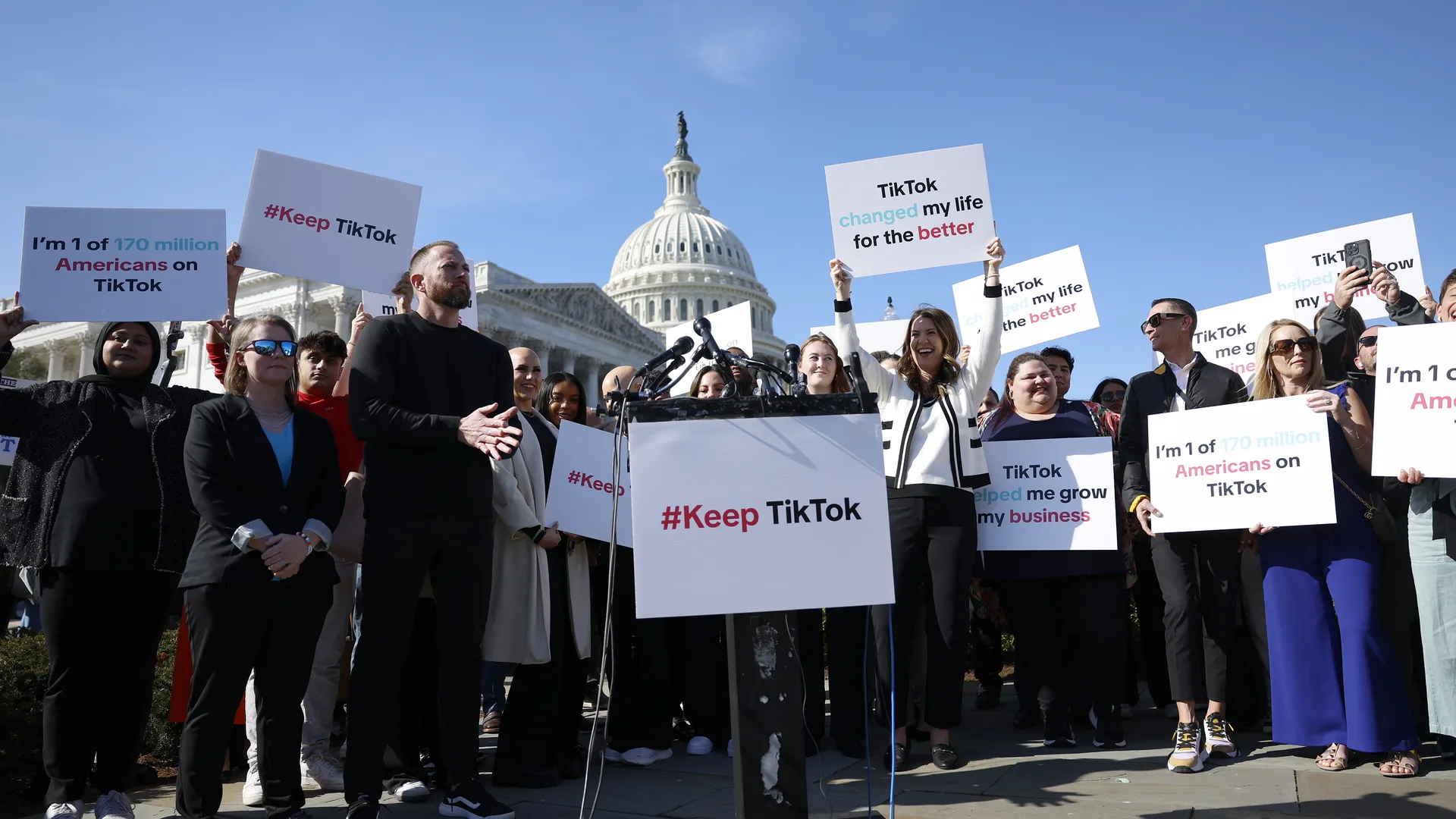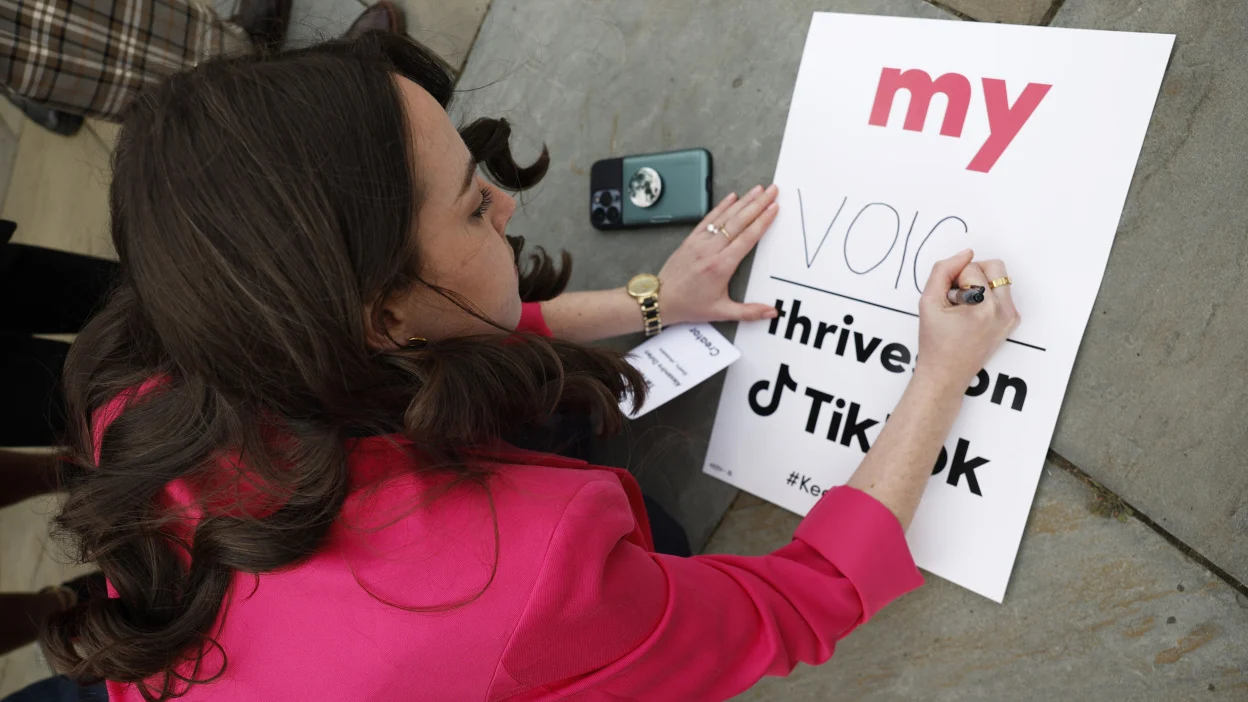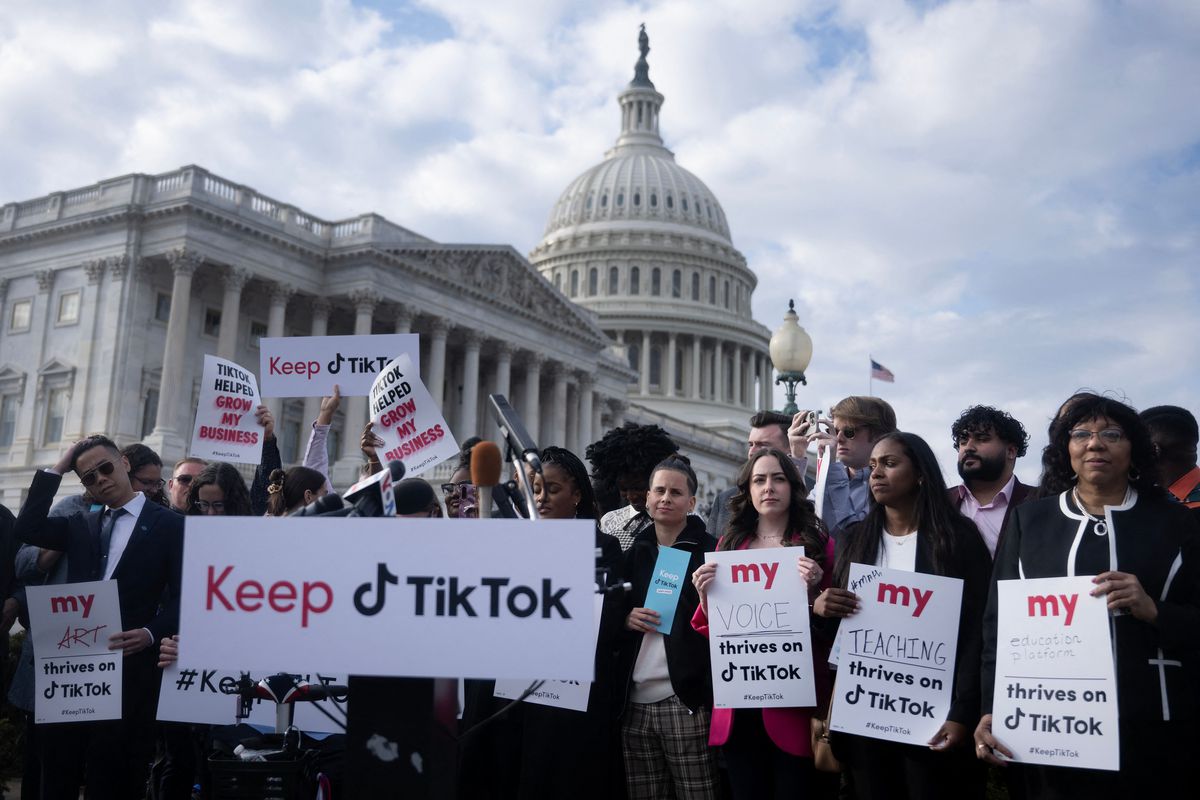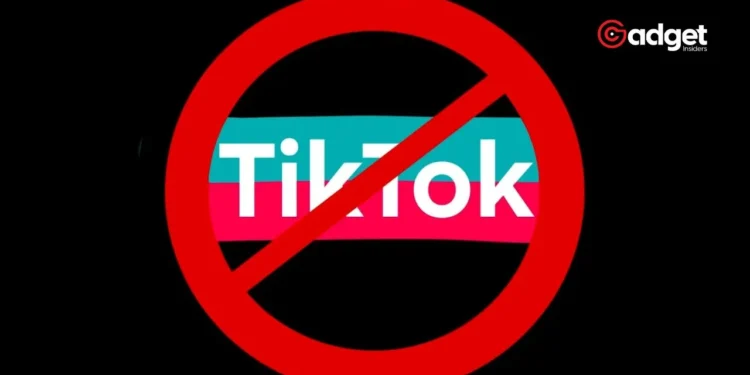As TikTok continues to shape the cultural and digital landscape, Americans are deeply divided over the potential ban and sale of the wildly popular app. An ABC News/Ipsos survey highlights a stark division between age groups and along political lines. The implications of this divide touch upon issues of digital security, personal freedom, and international relations.

Generational Clash: Youth vs. Elders on Digital Grounds
The divide over TikTok’s fate reveals a significant generational gap. Young adults, particularly those between 18 and 29, who comprise a substantial portion of TikTok’s user base, largely oppose governmental interference.
In contrast, a majority of seniors, 65 years and older, who are less engaged with the app, show strong support for government action, including a forced sale or a complete ban if the social app remains under Chinese ownership.
This split is mirrored in the usage patterns: 55% of young adults use TikTok regularly, whereas only 14% of seniors engage with the platform. Consequently, 70% of the older demographic supports a ban, viewing it through the lens of national security, while only 39% of the younger group agrees, often citing concerns over freedom of expression and digital innovation.
“More people support than oppose a TikTok ban; frequent users, young adults push back: POLL – ABC News.” https://t.co/5CZqMqXgYG
— Pedro Magalhães (@PCMagalhaes) May 7, 2024
Political Perspectives: A Partisan Digital Divide
Political affiliations also significantly influence attitudes toward the controversial social app. Republicans and conservatives are more likely to favor a ban or a forced sale, driven by concerns over Chinese influence and data security.
On the other hand, Democrats, independents, and moderates show more hesitation, reflecting a divide even among Biden voters. Trump supporters, in contrast, overwhelmingly favor stringent measures against the app.

The Role of TikTok in U.S. Advertising and Politics
Despite its uncertain future, TikTok has become a vital platform for advertisers targeting the lucrative markets of beauty, fast food, and music.
The social app’s role extends beyond just a social media platform; it is a battleground for competing business interests, including major U.S. internet companies like Google and Facebook, which have introduced their short-form video services to compete with the app.
Moreover, lawmakers argue that banning TikTok could protect America’s youth from foreign manipulation. Recent claims by political figures suggest a fear that the app could be used by foreign entities to influence U.S. politics and social movements, particularly among younger demographics.

The Future of TikTok: A Balancing Act
As discussions continue, the future of the social app hangs in the balance. The platform itself has tried to reshape its image, pointing out that its user base now mirrors the broader U.S. population demographics and not just Gen Z.
This is a critical move as it attempts to safeguard its substantial advertising revenue, which remains at risk from potential government actions. What’s clear from the survey and ongoing debates is that the social app is more than just an app.
It’s a cultural and political phenomenon, reflecting broader tensions between freedom and control, innovation and security, youth culture, and traditional values. As the deadline for ByteDance to divest TikTok approaches, all eyes will be on how these tensions resolve and what it means for the future of digital expression and security in America.










